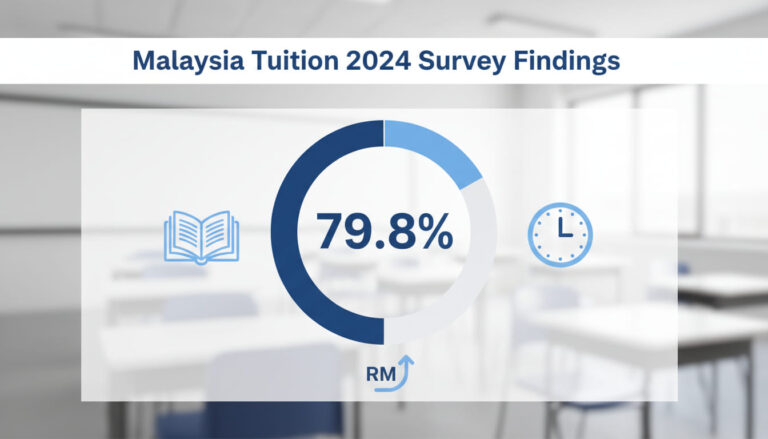Malaysia’s Child Mental Health Crisis: It’s Not Just About iPads
According to the latest NHMS (National Health and Morbidity Survey) report, 1 in 6 Malaysian children between the ages of 5 and 15 are living with mental health challenges — that’s around 500,000 young minds struggling silently in classrooms, playgrounds, and homes.
Recently, MP Datuk Seri Jalaluddin Alias warned in Parliament that these struggles are a “ticking time bomb” for Malaysia’s future — a wake-up call we cannot afford to ignore.
Must be the iPad, right? Unfortunately, No!
Many people are quick to blame social media or the early exposure to devices such as iPad and smartphones for this rise in mental health issues. While these factors can play a role, the reality is far more complex. The truth is that the upward trend began long before smartphones and TikTok entered the picture.
History of Mental Health Problem among Malaysian Children
Mental health problems among Malaysian children have been rising for many years. Back in 1996, about 13 out of every 100 children aged 5 to 15 were reported to have mental health issues. Ten years later, in 2006, it went up to almost 20 out of 100 children, and in 2011 the number was about the same.
The latest survey in 2023 shows it has dropped a little to 16.5 out of 100 children. Even with this small improvement, the rate is still much higher than it was in the 1990s.
This shows the problem has been around for a long time and isn’t caused only by recent trends like social media.
| Year | Prevalence of Mental Health Problems (Malaysian Children 5–15 years) |
| 1996 | ~13.0% (source) |
| 2006 | ~19.4% (source) |
| 2011 | ~20.0% |
| 2019 | ~7.9% |
| 2023 | ~16.5% |
Reasons behind children’s mental health issue in Malaysia
The reasons behind children’s mental health problems are complex and go far beyond just social media or screen time. Research in Malaysia, including earlier NHMS studies, points to several key factors.
First, family and financial stress can play a big role. Children from lower-income families, or those whose parents are going through divorce, loss, or mental health struggles, are more likely to face emotional challenges. A lack of parental time or attention, often due to work pressures, can make things worse.
Second, problems with friends and bullying are major triggers. Nearly half of Malaysian children who struggle with mental health say their difficulties are linked to peer issues — being left out, bullied, or not having a close friend to confide in. These experiences can lead to feelings of loneliness, anxiety, and low self-esteem.
Finally, other everyday pressures also add up — from heavy school workloads and high expectations to community stress and the fast pace of urban life. For some children, these pressures combine with personal or family difficulties, making it harder to cope.
In short, while technology may sometimes be part of the picture, the roots of the problem are deeper and more personal — tied to the environments children grow up in and the support systems around them.






